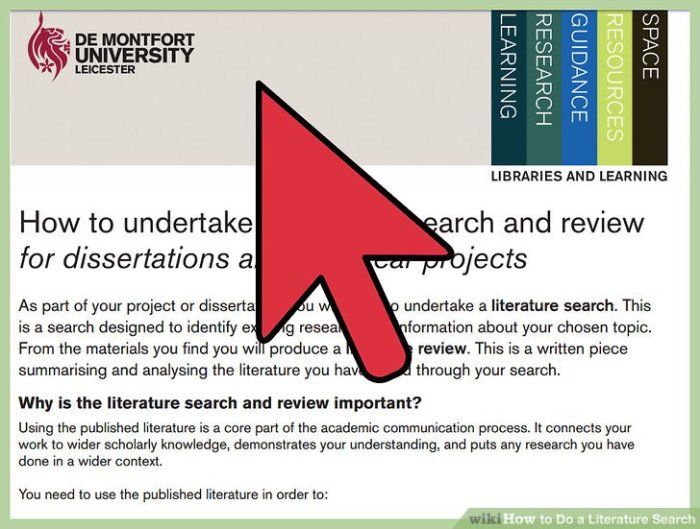
How to find literary resources in academic libraries sets the stage for this enthralling narrative, offering readers a glimpse into a story that is rich in detail with casual formal language style and brimming with originality from the outset.
Exploring the vast world of literary resources within academic libraries is like embarking on a treasure hunt, where every book, journal, or manuscript holds the key to unlocking new knowledge and insights in the realm of literature.
Literature and Libraries

Academic libraries play a crucial role in supporting literary research by providing access to a wide range of resources that are essential for students, scholars, and researchers in the field of literature. These libraries house various materials that are not typically available in public libraries or online, making them invaluable spaces for academic pursuits in literature.
Literary Resources in Academic Libraries
Academic libraries offer a plethora of literary resources that cater to the diverse needs of researchers and students. Some common examples of literary resources found in academic libraries include:
- Books: Academic libraries house a vast collection of books ranging from classic literary works to contemporary publications, critical analyses, and scholarly articles.
- Journal Articles: Academic journals focused on literature provide in-depth analyses, reviews, and discussions on various literary topics and authors.
- Databases: Academic libraries subscribe to databases that offer access to literary criticism, literary theory, author biographies, and other relevant information.
- Archives and Special Collections: Some academic libraries have unique archives and special collections that contain rare manuscripts, letters, and documents related to renowned authors and literary movements.
Contribution of Academic Libraries to Literature Studies
Academic libraries contribute significantly to the study of literature by fostering a conducive environment for research, scholarship, and intellectual exploration. Here are some ways in which academic libraries support literature studies:
- Access to Rare Materials: Academic libraries provide access to rare and unique literary materials that are essential for conducting in-depth research and analysis.
- Expert Assistance: Librarians in academic libraries are trained professionals who can offer guidance and support in navigating complex literary resources and databases.
- Interdisciplinary Research: Academic libraries facilitate interdisciplinary research by offering resources that connect literature to other fields such as history, philosophy, and cultural studies.
- Collaborative Spaces: Academic libraries provide collaborative spaces where students and researchers can engage in discussions, workshops, and study groups related to literature.
Outdoor Activities
Engaging in outdoor activities can be a powerful source of inspiration for literary exploration. The sights, sounds, and experiences encountered in nature often spark creativity and imagination in writers and readers alike.
Literature Reflecting Outdoor Experiences
Literature frequently reflects outdoor experiences, capturing the beauty and complexity of nature through vivid descriptions and compelling narratives. Writers draw upon their own outdoor adventures to create stories that resonate with readers and evoke a sense of wonder and appreciation for the natural world.
Connection Between Nature and Literary Themes
- Many literary themes revolve around nature, exploring concepts such as the relationship between humans and the environment, the cycles of life and death, and the power of natural forces.
- Academic research often delves into how nature is portrayed in literature and the symbolic significance of natural elements in shaping characters and plot development.
- Exploring the connection between nature and literary themes can offer valuable insights into the cultural, historical, and philosophical underpinnings of various literary works.
Travelling and Hotels
Travelling can greatly influence literary research and writing by providing new perspectives, inspiration, and cultural insights. Visiting literary landmarks or libraries around the world can offer a deeper understanding of different literary traditions and the context in which famous works were created. Additionally, hotels play a significant role in the literary world, with some establishments gaining fame for hosting renowned writers or serving as settings for beloved novels.
Literary Landmarks and Libraries
Exploring literary landmarks and libraries around the world can provide valuable insights into the lives of famous authors, the inspiration behind their works, and the historical context in which they were written. Some notable literary destinations include:
- The Shakespeare and Company bookstore in Paris, known for its rich literary history and role in fostering the expatriate literary community.
- The British Library in London, home to extensive collections of manuscripts, rare books, and literary treasures from around the world.
- The Mark Twain House & Museum in Hartford, Connecticut, where the renowned author lived and worked on some of his most famous works.
Famous Literary Hotels
Hotels have often served as settings for famous literary works or as temporary homes for celebrated authors. Some notable literary hotels include:
- The Algonquin Hotel in New York City, a gathering place for the “Algonquin Round Table” group of writers, critics, and actors in the early 20th century.
- The Stanley Hotel in Colorado, which inspired Stephen King’s novel “The Shining” and has become a popular destination for fans of the horror genre.
- The Hotel Monteleone in New Orleans, known for its literary connections and as a favorite haunt of writers like Ernest Hemingway and Tennessee Williams.
Holidays and Vacations

During holidays and vacations, people often have more free time to relax and explore new activities. This can be a great opportunity for literary exploration, reading, and discovering new literary works.
Literary Exploration During Vacations
While on vacation, individuals can immerse themselves in reading, whether it be a novel, poetry, or non-fiction. Vacations provide the perfect setting to delve into a good book without the distractions of daily life. Whether lounging on the beach, sitting by a cozy fireplace in a cabin, or exploring a new city, reading can enhance the vacation experience.
Role of Literature in Holiday Traditions
Literature plays a significant role in shaping holiday traditions and celebrations. Many holidays have stories, poems, and songs associated with them that are passed down through generations. For example, Christmas is often accompanied by reading classic tales like “A Christmas Carol” by Charles Dickens or reciting holiday poems. Literature adds depth and meaning to holiday festivities, creating a sense of nostalgia and connection to the past.
Amusements And Attractions
Amusement parks are not only places for fun and excitement but can also serve as a source of literary inspiration. The whimsical settings, colorful characters, and imaginative stories found in amusement parks can spark creativity and fuel the imagination of writers and artists alike.
Furthermore, attractions related to famous literary works or authors can be a great way to immerse oneself in the world of literature. Visiting locations that inspired beloved authors or stepping into the settings of iconic novels can deepen one’s appreciation for literature and provide a unique perspective on the creative process.
Literary Attractions in Cultural Venues
- Visiting museums dedicated to famous authors like Shakespeare or Jane Austen can offer valuable insights into their lives and works.
- Exploring themed attractions based on popular book series like Harry Potter or The Lord of the Rings can transport visitors to fantastical worlds.
- Attending literary festivals and events at cultural venues can provide opportunities to engage with writers, poets, and scholars, fostering a sense of community and intellectual exchange.
As we conclude this journey through the labyrinth of academic libraries and literary treasures, it becomes evident that the quest for knowledge and inspiration knows no bounds, and the doors to literary exploration are always open for those willing to seek them out.
FAQ Section
How can I access rare literary resources in academic libraries?
To access rare literary resources, you can request assistance from the library staff who can guide you on the proper procedures for accessing special collections or archives.
Are there any online platforms to search for literary resources in academic libraries?
Yes, many academic libraries have online catalogs or databases where you can search for literary resources remotely.
Can I borrow literary resources from academic libraries?
Most academic libraries allow borrowing of books and other resources, but rare or valuable items may only be available for in-library use.
How do I know if a specific academic library has the literary resources I need?
You can check the library’s online catalog or contact the library staff to inquire about the availability of specific literary resources.





